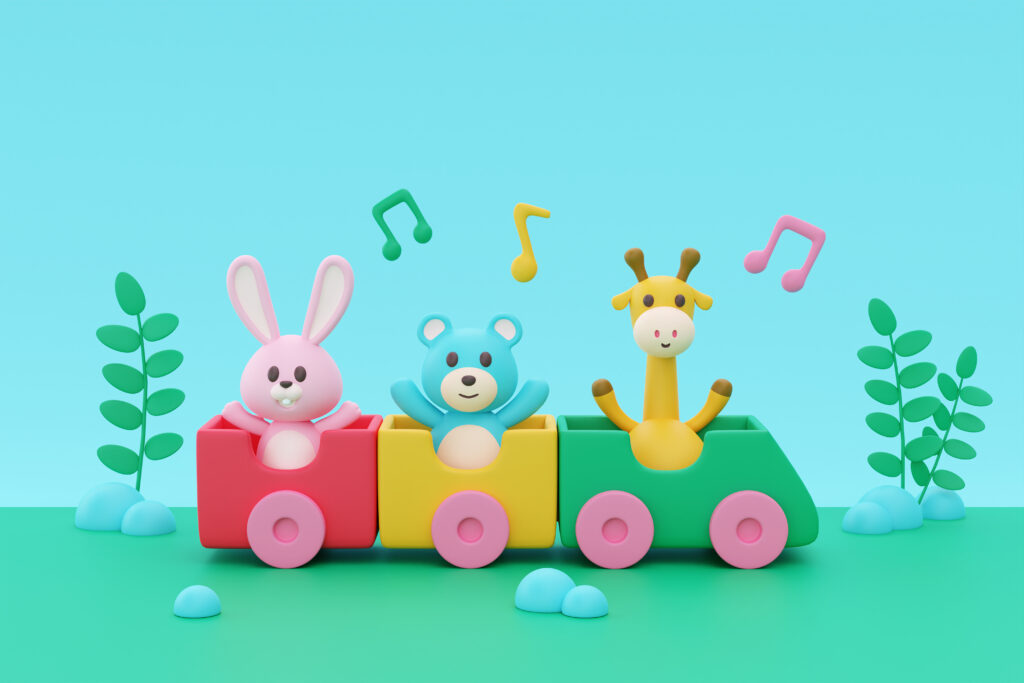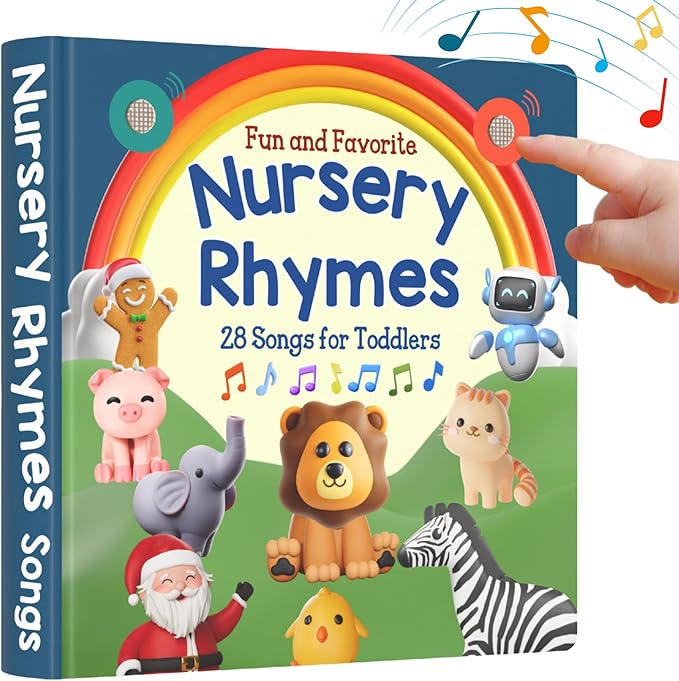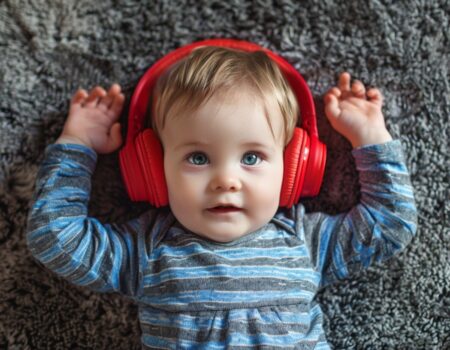From their very first days, babies are true sponges, absorbing all information from their environment. Among the most powerful and beneficial stimuli, music and nursery rhymes hold a special place. Far from being mere entertainment, they play a crucial role in the cognitive, emotional, social, and even physical development of toddlers. Let’s delve into the many facets of this melodic interaction.
Early Sensory and Auditory Awakening
Hearing is one of the first senses to develop in utero. Babies are already sensitive to sounds long before birth. Exposing a newborn to music and nursery rhymes helps to refine their auditory sense. Variations in rhythm, melody, and timbre stimulate the brain areas dedicated to listening, thereby promoting sound distinction, an essential skill for language acquisition. The repetition of sound patterns helps the baby’s brain create neural connections, strengthening their ability to process auditory information.
Language in Music: A Melody for Words
Nursery rhymes are true springboards for language acquisition. Their simple melodies, rhymes, and repetitions facilitate the memorization of words and grammatical structures. By singing, parents or educators articulate sounds more distinctly, which helps the baby recognize phonemes and associate them with words. Music also exposes babies to a lexical and syntactic richness they might not encounter in daily conversation. Furthermore, the rhythm of songs prepares the brain for language prosody, i.S., the intonation and stress of words and sentences, key elements for language comprehension and production.
Cognitive Development: Awakening Intelligence to the Rhythm
Active listening to music engages many cognitive functions. It improves memory, concentration, and attention span. Babies learn to anticipate sounds, recognize patterns, and differentiate instruments. Action songs, for example, encourage motor coordination and understanding of instructions. Studies even suggest that exposure to classical music, especially Mozart, could have a positive impact on spatial reasoning, although this “Mozart effect” is still debated and requires a nuanced interpretation. However, it is clear that auditory and rhythmic stimulation contributes to the overall development of cognitive abilities.
Emotional and Social Impact: The Comforting Power of Melodies
Music is a powerful vehicle for emotions. Lullabies soothe crying, create a sense of security, and promote sleep. Joyful songs stimulate good humor and encourage interaction. Singing with a baby strengthens the emotional bond between parent and child, creating privileged moments of sharing and complicity. Nursery rhymes and songs can also serve as support for expressing emotions, learning to identify them, and reacting appropriately. In a social context, music facilitates interactions with other children and adults, encouraging imitation and collective participation.
Movement and Motor Skills: Dancing to the Rhythm of Life
Music naturally encourages movement. Babies react to rhythms by moving their arms, legs, clapping their hands, or swaying their bodies. These movements, even rudimentary ones, contribute to the development of gross and fine motor skills, coordination, and balance. Action songs are particularly effective in developing body awareness and the ability to imitate. Rhythm also helps to synchronize movements, which is essential for future activities like walking or dancing.

Practical Tips for Integrating Music and Nursery Rhymes into Baby’s Daily Life
Sing regularly:
Your voice is the most beautiful music for your baby. Don’t be afraid to sing, even if you think you sing off-key. The intention and the connection are what matter most.
Vary musical genres:
Expose your baby to different styles of music (classical, jazz, world music, traditional nursery rhymes) to broaden their auditory horizon.
Use simple instruments:
Rattles, maracas, small drums… Let your baby explore sounds and rhythms.
Integrate music into routines:
A lullaby before naptime, a cheerful song upon waking, a nursery rhyme during diaper changes…
Let the baby participate:
Encourage them to clap their hands, wiggle, or “sing” in their own way.
Make it a game:
Music should remain a pleasure and a moment of sharing, without pressure.
In conclusion, music and nursery rhymes are much more than simple melodies for babies. They are true catalysts for development, nourishing their brains, hearts, and bodies. By integrating them playfully and regularly into the daily lives of our little ones, we offer them a precious gift: a symphony of opportunities to grow and flourish harmoniously.











No Comment! Be the first one.